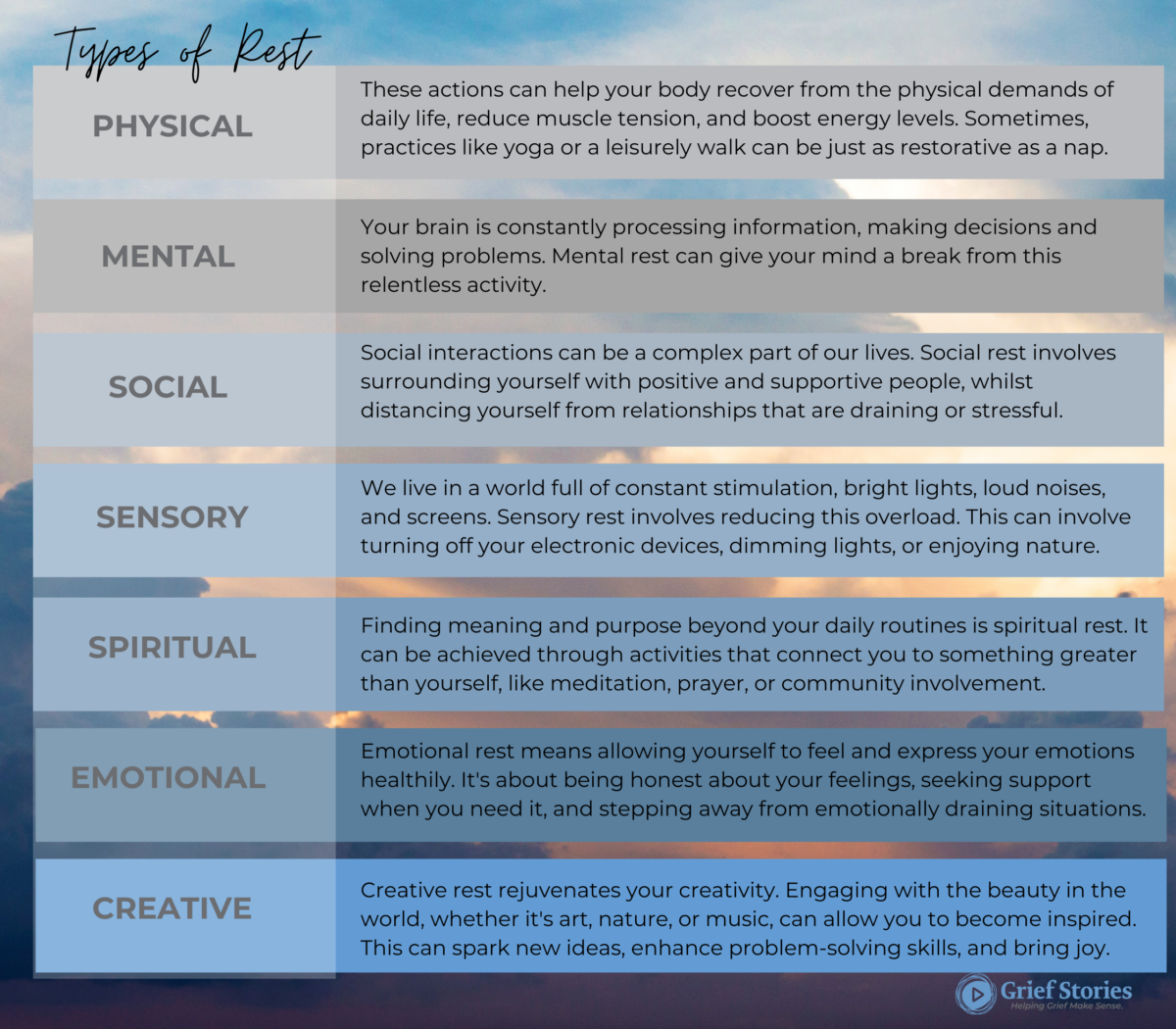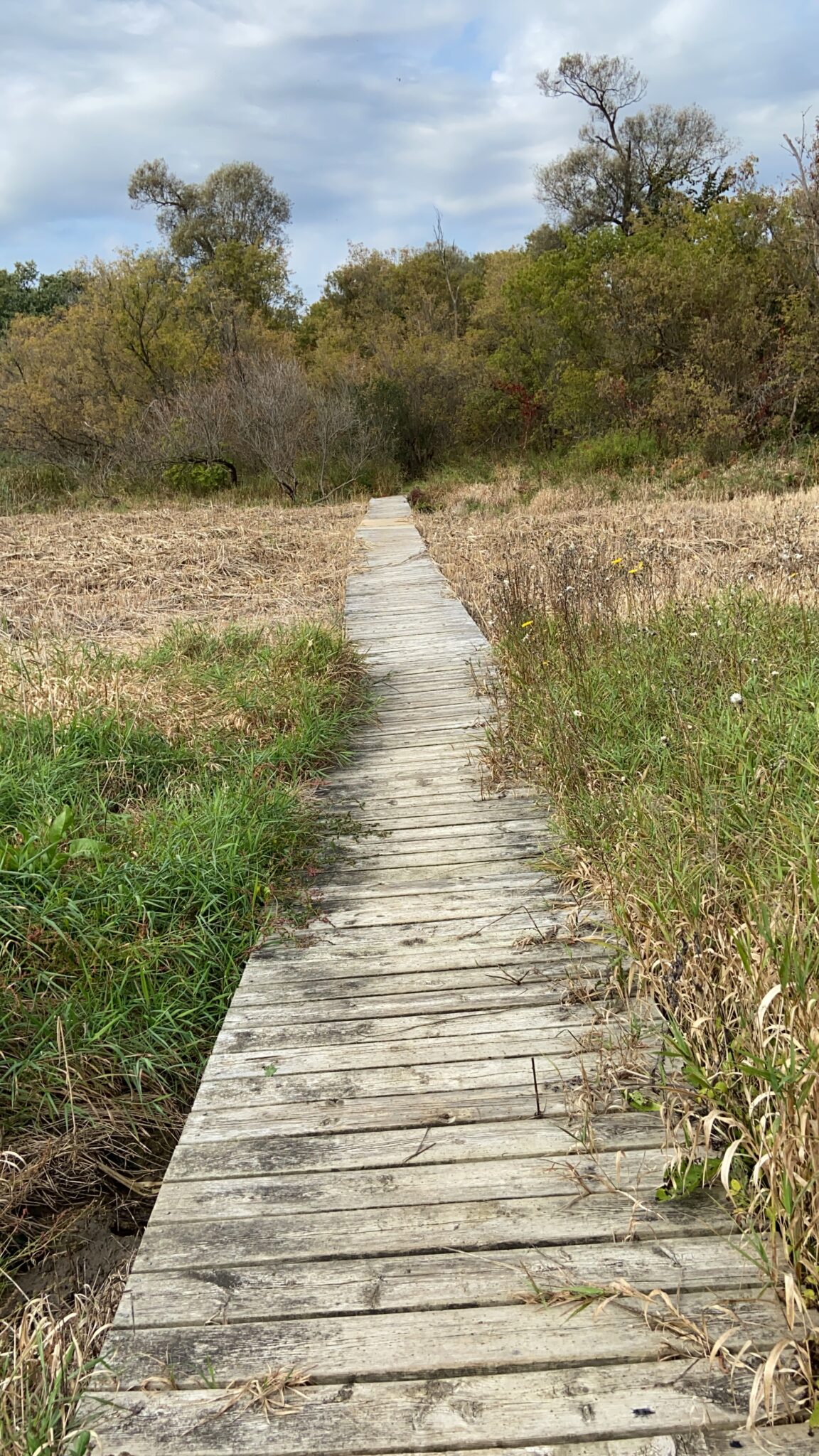Posts Tagged ‘grief education’
Grief, Exhaustion, & Rest
Many people consider grief to be a response to the death of a loved one, but we grieve so much more than that. Grief is an emotional response to loss of any kind. Both real or perceived loss can trigger the response. The loss of a job, a miscarriage, a breakup, losing a sentimental item, or big life changes like moving can all cause grief.
Grief fatigue is a very real thing. Even though we know that grief is a healthy response to loss, it’s perfectly normal to get tired of it. You’re not in intense pain, but it also isn’t getting any easier yet. It’s exhausting. Grief exhaustion refers to the deep and pervasive fatigue often accompanying the grieving process. It goes beyond the typical tiredness we experience in our daily lives and stems from the immense emotional and psychological strain that grief places upon us.
Grief can leave you feeling drained, both physically and mentally, making even the simplest tasks seem overwhelming. Even typical activities can feel like too much when our physical body and brain refuses to cooperate. The mind and body are closely connected and the grief process is a good example of that. The mental and emotional toll of grief can wreak havoc on a person’s mental and physical well-being.
Emotions are not always easy to deal with and having intense ones can be incredibly draining. Grief is a complex emotion that can be mentally and physically taxing. The profound sadness and range of emotions experienced during the different stages of grief can lead to fatigue and exhaustion. Even though you’re tired, you may have trouble sleeping or sleep a lot and never feel rested.
We often blame grief exhaustion on sleep deprivation—and that is a component. Sleep is essential, and needs to be prioritized. But, so many of us still feel exhausted and burnt out even when we finally start sleeping. Grief exhaustion isn’t solved with more sleep. Dr. Saundra Dalton Smith says we need seven types of rest. As I read her work, I find it especially applicable to grief.

Dr. Saundra pointed out that taking a comprehensive approach to rest is a bridge to better sleep and this is handled with attentive self-care. When we talk about rest outside of sleep, our minds might immediately jump to stereotypical “self-care” activities, like getting a massage or taking a bubble bath. Real self-care is nurturing our current needs. We might need to rest mentally, or to reconnect with our friends, or to be vulnerable with our emotions. Our needs are often rooted in the types of rest and what we’re lacking.
Being able to pinpoint what you and your body need in terms of rest will allow you to address the area and choose a restful activity that fits your needs.
When we understand the types of rest, we can become better aware of our own needs and make small changes in our lives that leave us feeling more whole, more energized, and more refreshed.
Grief and Disability: Carrie’s Story
By Carrie Batt, Grief Educator
My son says I am a mover and a shaker. He tells his friends that because of my extensive travels abroad and my volunteering. When his friends ask: “Why did she do that?” he always tells them “Because my mom believes that ‘anything is possible’.” As I look back on my journey, I know where I picked up this motto. When my baby brother was born, the doctors told my parents: “he will not walk, talk, nor know who you are”. From that day on my parents embodied that motto ‘anything is possible’ and in the end my brother does far more than walk and talk. This circumstance introduced me to the disability community knowing that people with disabilities deserve and can do more. Interestingly, I have had the privilege of working within the developmental sector in a variety of positions for more than thirty years.
In 2018, I added to my parents’ motto ‘anything is possible’ and included ‘everyone is worth it’. I added those words to the motto right after I had attended a kintsugi workshop offered by Rami Shami, a prominent member within the deathcare community. As soon as I realized that Rami had spent the last 30 years caring for the dying. I inquired about his experience in death, dying and disability. Rami unfortunately, had no experience in supporting people with a disability who were dying. Upon learning about the sheer lack of support and expertise on this topic, I proceeded to complete the end-of-life training with Beyond Yonder Community Deathcare program. Soon after, SEOL Care was created, which offers a disability-sensitive approach to death, dying, and disability.
It has become clear to me over time that we have much work to do to ensure the delivery of disability-sensitive grief literacy and grief support. In March of 2022 my proposal for four 1-hour sessions was approved, we provided the program for 20 participants. My heart was full in each session.
My heart remains full of hope that conversations, education, and expertise about disability sensitive end of life care and grief support will gain momentum as more and more people join in on this vital conversation.
Currently, there are several rays of hope that suggest grief education and support can and will be offered in a more inclusive way. As a certified grief educator, I now offer online disability-sensitive grief support services for individuals and groups. My employer is offering disability-sensitive grief literacy sessions. The Bereavement Ontario Network has shared information through their newsletter and in a network webinar, where the gentleman I support and I were the guest speakers. Bereaved Families of Ontario have been receiving multiple requests to provide grief resources for the neurodivergent community. Additionally, Bereaved Families of Ontario are seeking out speakers with lived experience related to grief and under-represented communities for their grief literacy series. I remain grateful knowing that these are hopeful times, and these examples are a positive step in the right direction.

